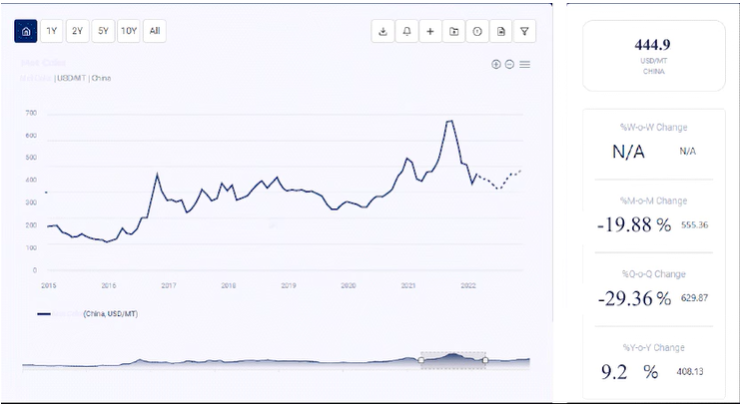As India moves toward a more sustainable future, the role of responsible waste management is becoming more prominent. One of the most effective tools in this mission is Extended Producer Responsibility (EPR) Registration. While it may appear as just a regulatory formality, EPR offers numerous long-term advantages for businesses of all sizes and sectors.
In this blog, we explore the top 10 benefits of EPR Registration and why every eligible business should not only comply but also embrace it as a smart growth strategy.
1. Legal Compliance and Risk Mitigation
Let’s start with the most obvious benefit—legal compliance. EPR Registration is mandatory for producers, importers, and brand owners (PIBOs) dealing with plastic packaging, electronics, batteries, and other regulated products.
By obtaining EPR Registration, your business:
-
Avoids legal penalties and shutdowns
-
Stays updated with pollution control board guidelines
-
Reduces the risk of non-compliance notices
✅ Compliance builds the foundation for long-term operations and investor confidence.
2. Enhanced Brand Reputation
Today’s consumers are highly environmentally conscious. Businesses that take active steps in sustainability—like getting EPR certified—build stronger brand loyalty and trust.
-
Customers prefer eco-friendly brands
-
Green credentials help differentiate in a competitive market
-
Transparency about waste practices boosts credibility
✅ An EPR Certificate on your product packaging can become a powerful trust symbol.
3. Easier Access to B2B Partnerships and Government Contracts
Many corporate clients and government tenders now require EPR compliance as a prerequisite.
By having EPR registration, businesses:
-
Become eligible for high-value partnerships
-
Can participate in eco-conscious procurement programs
-
Stand out during B2B negotiations
✅ Green compliance is becoming a gateway to premium collaborations.
4. Contribution to the Circular Economy
EPR promotes the reuse, recycling, and recovery of materials, leading to a circular economy where products and packaging have a longer life cycle.
-
Reduced reliance on virgin raw materials
-
Waste materials become valuable inputs again
-
Fewer resources are extracted from nature
✅ EPR is your business’s ticket to a more resource-efficient, circular supply chain.
5. Operational Cost Savings in the Long Run
Though initial compliance with EPR can seem expensive, it actually leads to significant cost savings in the long term:
-
Reduced raw material costs through use of recycled inputs
-
Lowered waste disposal fees and fines
-
Optimized packaging and product design reduce material use
✅ Efficient waste management = smart budgeting.
6. Innovation in Product Design
EPR encourages companies to consider the entire lifecycle of their products. This leads to:
-
Lighter, recyclable, or biodegradable packaging
-
Modular designs for easy disassembly and recycling
-
Greater focus on eco-friendly raw materials
✅ EPR forces innovation, which helps brands stay ahead of the curve.
7. Competitive Advantage in Export Markets
Many countries now require proof of EPR compliance or similar certifications before allowing imports.
If your business is planning to expand globally:
-
EPR registration can boost export opportunities
-
Many Western markets (EU, UK, Canada) welcome eco-compliant suppliers
-
It simplifies cross-border environmental paperwork
✅ Going global is easier when your sustainability scorecard is clean.
8. Better Waste Traceability and Reporting
Through EPR systems, businesses maintain detailed records of:
-
Packaging types and volumes
-
Waste collection and recycling metrics
-
Third-party recycler partnerships
This data-driven reporting is valuable for:
-
Annual sustainability reports
-
Internal audits
-
Strategic planning for waste reduction
✅ Tracking your waste footprint leads to smarter decisions.
9. Builds Consumer Awareness and Responsibility
By involving consumers in your EPR model (e.g., through take-back schemes or awareness programs), your business educates them on sustainable disposal.
-
Customers participate in recycling initiatives
-
Better sorting and disposal habits reduce contamination
-
You build a loyal community around sustainability
✅ Your brand becomes an environmental educator—not just a seller.
10. Future-Readiness
With India tightening environmental regulations, companies with early EPR adoption are future-proofing their operations.
-
Be ready for evolving laws and stricter guidelines
-
Avoid last-minute rushes or costly retroactive compliance
-
Develop in-house sustainability capabilities
✅ Early movers in EPR are already shaping the green economy.
Final Thoughts
EPR Registration is more than just a legal requirement—it’s a strategic business decision. Companies that treat EPR seriously not only gain operational and reputational benefits, but they also contribute to India’s broader goals of environmental protection and waste reduction.
By understanding and leveraging the benefits of EPR, your business positions itself as a responsible leader in sustainability—something both the planet and your stakeholders will appreciate.




